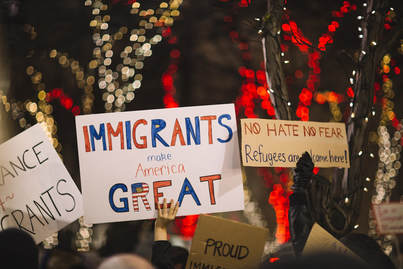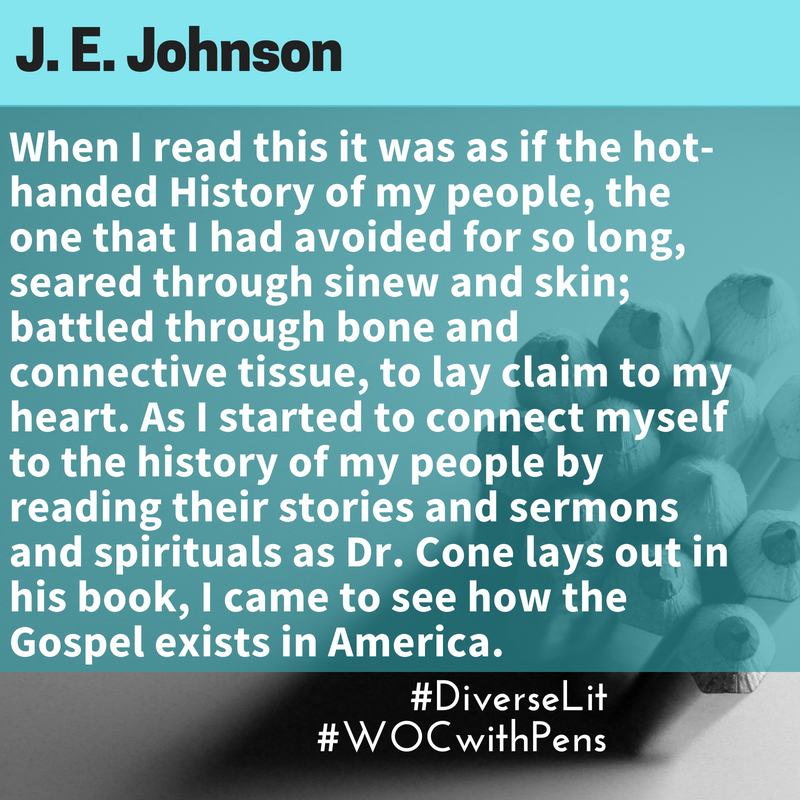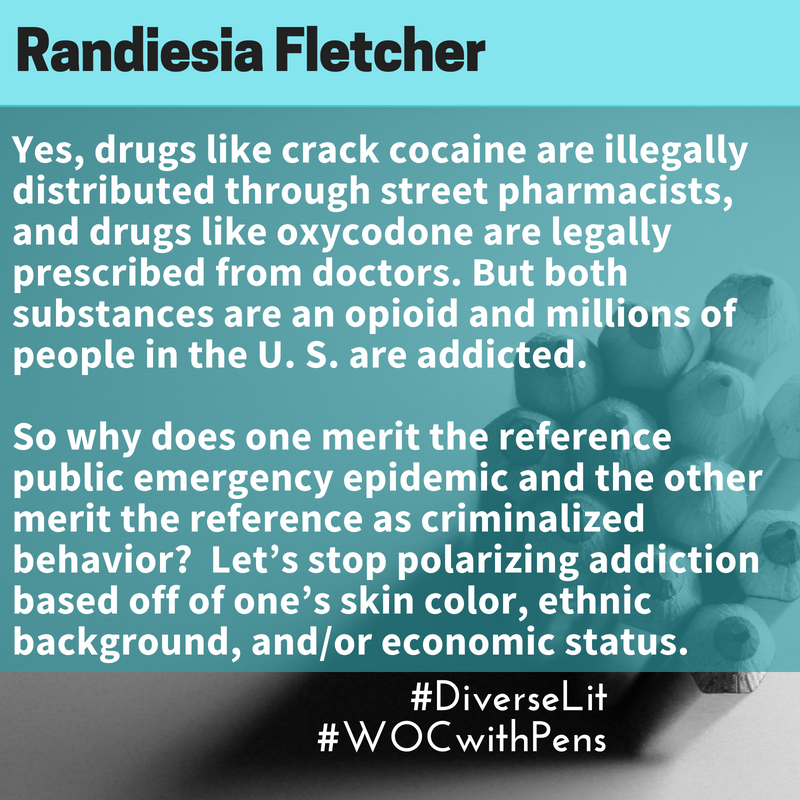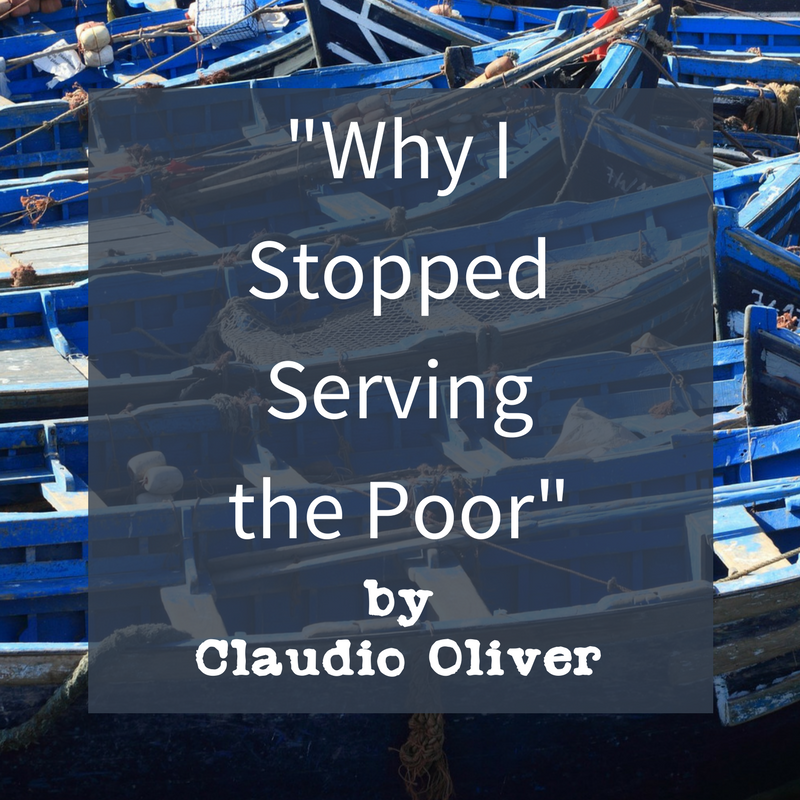 For those of you who know my personal situation, you know how closely the humanitarian crisis of splitting families apart at the border is to my heart. For many reasons, I cannot publicly tell you what’s going on with my family. I have been weeping, weeping this week with every new article I read. Weeping. I have not written about this because there is much I cannot write, many details that cannot be shared. I will do what I need to protect my family, but I cannot stay silent either. As the news continues to arrive from the border, and I break down each time I hear that this is becoming more and more common, I am thankful for those who are on the front line fighting this issue. Thank you, thank you thank you. Thank you. From my current calculations, today, June 5, the government has separated roughly 2,157* children from their parents since October of 2017. For those wishing to get involved somehow or another, here’s a few steps: 1---Support organizations such as @supportKIND @WorldRelief @CCharitiesUSA @HopeBorder @TheimmigProject @TheYoungCenter @RAICESTEXAS @Door_NYC @STRONGYOUTHINC @CarecenDC 2---Read up on what’s going on. Here’s a few articles that you can start with. If you google it, you’ll find a bunch a more: a. 1475 migrant children are unaccounted for, yes that’s right they are unaccounted for: Please keep in mind that this does not necessarily mean they are missing, they are unaccounted for by ORR (Office of Refugee Resettlement). When children are moved from an immigration facility to a sponsorship family, ORR supposedly no longer takes responsibility for the child. However they do call 30 days later to check up on the child. If no one answers that call, they are unaccounted for. This can mean a few things. In some cases, it has been reported that children are trafficked. In other cases, if the child is in a home of an undocumented relative, it could be that the undocumented relative does not want to answer ORR's accounting call because due to new policy measures that allows ORR and ICE to work together, they may get deported. According to an article in Quartz: "There are four levels of sponsors, according to ORR policy, beginning with parents, then siblings and close relatives, then distant relatives or unrelated adults, and finally willing strangers or agencies. Potential sponsors, once identified, must apply for unification with the child and provide evidence of a relationship. If the applicant is approved, the child is released. The ORR tries not to hold kids extensively, and data from 2015 show that children spent an average of 34 days in custody before joining a sponsor.Once a child joins a sponsor, the ORR relinquishes responsibility—that’s what has people up in arms now. The sponsorship agreement essentially leaves it up to the child and their sponsors to show up for further immigration proceedings." Supposedly these are children who have come over traveling alone. In reading more about this, it used to be that ORR did not require documentation checks on sponsorship families, which means that if an undocumented child has an undocumented relative already living in the U.S., they can live with each other. However, due to a recent memorandum of understanding (MOU) between ORR and ICE, "the refugee agency will begin to provide ICE with information, including names, fingerprints, addresses, and phone numbers, on children’s parents or sponsors, as well as of other adults living within the same household, according to a copy of the agreement obtained by The New York Times." I cannot find a date on when that MOU was signed. The above NYT article from May 1, 2018, says "recently signed." Therefore, many undocumented families will not step up to be sponsorship families because of fear that they will be discovered and then deported. This can make situations worse. Bad in that if undocumented children don't have sponsorship families that step up for them, they will likely live in facilities. Bad in that more undocumented immigrants are so scared for their own lives that they cannot take care of their extended families. This interview/article on NPR with former ORR director helps explain why "missing" is misleading. I'm not saying let's not focus on the missing kids. Any child not in a safe and appropriate housing should be fought for. *ANY* what I am saying is that not all 1,475 are in a bad place. Here's a tweet thread that helps explain how this is connected to the below articles. b. The Trump Administration’s Systemic Assault on the Protection of Unaccompanied Children. c. Hundreds of Immigrant Children have been taken from Parents at the U.S. Border d. Catholic advocates denounce US plan to prosecute all illegal border crossings e. Trump says about immigrant children: “They’re not innocent” f. Whatever isn’t an option for immigrant children. g. Families who cross the border won’t stay together 3---Follow the Southern Poverty Law Center, ACLU (who recently filed a class action suit against the government, and has recently published an extensive report of abuses happening to immigrant children), and follow and take a look at Matthew Soerens’ suggestions. 4---Let’s talk about what the Gospel says about refugees and strangers. Let’s talk and talk and talk about this, from the pulpit, behind closed doors, on our blogs, on twitter, and everywhere else. 5---There’s lots of literature to read about this. Books such as Enrique’s Journey, Tell Me How it Ends: An Essay in 40 Questions, Christians at the Border, Welcoming the Stranger, God is Stranger. 6-- Sign this Not Without My Child campaign along with other Christian women "As mothers we are outraged; as Christians we believe this is completely antithetical to loving mercy and doing justice - not to mention biblical hospitality for the stranger." Sign this MoveOn petition. Tell Kirstjen Nielsen, Secretary of the Department of Homeland Security, that separating families at the border is unjustified and cruel. 7---Protest. Take it to the streets. And if you know of any other protests scheduled, please comment or tweet me. 8--Call your House Reps and your Senators and tell them your thoughts. Add in the comments other orgs and other books and other articles (and links to them please) so we can join hands together! PRAY PRAY PRAY. And one thing I’d love to see is Evangelical leaders joining hands with Catholic, Protestant, Jewish, and Muslim leaders to effect change nationally. Any thoughts on how to make that happen? My time is very limited right now, but I will do what I can. If you have thoughts, ideas or you have a big platform and can work on making that happen, I’ll support any way I can. Thank you. Sincerely, Gena *my calculation is based on this NYT article about 700 children taken between OCT and April, and then 658 separated between May 6 and May 19 (which is about 47 per day) which adds another 799 to the total. However, this does not account for any taken in after the NYT article on April 20 and until May 6 when GA Sessions announced the policy. So likely, the number is higher.
0 Comments
"When I was asked how I could possibly be a Christian given the history of Black people in America –the oppressive tyranny and terror that was endorsed, supported, and upheld by the Church, not to mention the current silence from Evangelicals regarding the same oppression –I would just shrug. Those two things, my Blackness and my Christianity, were never in conflict, because I’d allowed neither to touch me, let alone each other. They were two distinct and separate identities.
... When I read this it was as if the hot-handed History of my people, the one that I had avoided for so long, seared through sinew and skin; battled through bone and connective tissue, to lay claim to my heart. As I started to connect myself to the history of my people by reading their stories and sermons and spirituals as Dr. Cone lays out in his book, I came to see how the Gospel exists in America." - J. E. Johnson For more, read the rest of her article here. Check out her website: www.prettyforablackgirl.com  “…Where love is this capacity to be wounded. I’m really asking white people to learn how to love themselves at a different level. If loving oneself is linked to telling the truth about oneself, then risking the white self is having the capacity to love even more.” – George Yancy, from The Faith Angle podcast with Kirsten Powers & Jonathan Merritt. Maybe we white Americans don’t love those who don’t look like us because we don’t love ourselves enough. Loving our wounded selves requires honesty, reflection, and a resolve to move in a different direction. It requires so much more to love our wounded selves. It was much easier to love myself physically when the scale showed me my healthy weight. But after two children and a series of circumstantial life events, I am now heavier than I am comfortable with. It’s not easy to love my wounded self. It was much easier to love myself spiritually before I walked away from a church I was apart of for nearly a decade. It’s not easy to love my wounded spirit. It was much easier to love myself mentally before my honest blog delved into my own deconstruction of my faith, and blog readership and encouraging comments decreased. It’s not easy to love the broken writer within. It may not ever be “easy” to love oneself, but it’s much easier to love oneself when wounds are few (or hidden) and community comes easy. But easy community, in my experience, is surface-level. It’s community with plenty of—as my friend Craig Stewart says--rainbows covering our open wounds. If love is the capacity to be wounded, apathy is the capacity for the pretense of perfectionism. Yes, apathy is the capacity for the pretense of perfectionism. So we have a lot of apathetic communities, lying to themselves that they are good, they are whole, that change is needed only for forward movement, not for reflecting on past wounds. In a Letter to White America, Yancy challenges us to let go of our “white innocence, to use this letter as a mirror, one that refuses to show you what you want to see, one that demands that you look at the lies that you tell yourself so that you don’t feel the weight of responsibility for those who live under the yoke of whiteness, your whiteness.” I hope that we as White Americans, and better yet, as White Evangelicals can learn to love ourselves enough that we acknowledge white privilege, white power, white dominion, white systems, and white pedestals. Can we, as white evangelicals, learn to love ourselves enough that we teach our children the truth about our nation’s history even if our schools’ curriculums do not? Can we, as white evangelicals, learn to love ourselves enough that we learn to actively listen—not just waiting for our chance to interrupt—to the wounds, the discrimination, the racism, the misogyny that minorities have faced in the world, and more deeply in the church? Can we love ourselves enough, can we be comfortable enough in our own wounded skin to sit still and not immediately get defensive when others speak of their wounds? Can we love ourselves enough to reject the apathy of perfectionism, and to accept that we are very wounded. Can we love ourselves enough to accept that in tattooing ourselves with rainbows—which was itself painful—we have inflicted pain on so many others. Can we love ourselves as Christ loved us, full of imperfection and very much in need of being made whole? Can we, as white evangelicals, risk the white self and learn to love ourselves deeper, creating more capacity to love those who don’t look like us? When we learn to be honest about our own skin color, what all it represents—beyond extreme forms of racism—and what all we reap from it currently, maybe then we can be honest about black and brown skin, about experiences and systemic sin that has kept white skin on a pedestal dominating and domineering. My friend Craig is a white South African. In his article Rainbows Tattooed over Open Wounds, he says, “I avoid pain and brokenness, most especially that which is my own and that which is caused by me. This has been carefully cultivated in my life and reflects my personality, but it also mirrors the culture within which I’ve been raised. Western evangelical Christian culture avoids lament and has an almost pathological focus on achievement, celebration, victory and healing. … Culturally and theologically, western society avoids this path, and so we painted rainbows over the seeping wounds and sang Shosholoza together. The change we did see was remarkable and miraculous, but, in the end, we only dealt with the law of Apartheid and not the spirit that drove it.” Accepting my dual identity of both oppressor and oppressed as a white woman is a step toward seeing the spirit that drives my wounded skin, and I’m now on a path of learning how to be comfortable in the huge discomfort of what it means to be white. I’m grateful for the gift Yancy (and so many others) have given us white Americans. It’s an invitation to learn how to love my white skin by first understanding the fullness of what it is. To acknowledge, as Yancy said in the interview, that I am at best an anti-racist racist, and that my “comfort is linked to the pain and suffering [of people of color].” “In my heart, I’m done with the mask of sexism, though I’m tempted every day to wear it. And, there are times when it still gets the better of me,” Yancy said in his NYT article, pointing to his own wounded male skin and the fullness of what it is. Indeed, the gift of self-truth is one rarely offered in this world, but if we white evangelicals are actually going to work toward racial reconciliation—or conciliation or whatever else one wants to call it—we must not only accept this gift of self-truth, but openly embrace it. "Yes, drugs like crack cocaine are illegally distributed through street pharmacists, and drugs like oxycodone are legally prescribed from doctors. But both substances are an opioid and millions of people in the U. S. are addicted.
So why does one merit the reference public emergency epidemic and the other merit the reference as criminalized behavior? Let’s stop polarizing addiction based off of one’s skin color, ethnic background, and/or economic status." Read more from: America Only Started Caring About the Opioid Epidemic When It Hit Suburbia: Only when the victims are white does our government pay attention at Alternet.com Also check out more of Randiesia's work by visiting her website: http://www.randiesiafletcher.com/ and follow her on Twitter @bttr2gethr |
Gena's
|



 RSS Feed
RSS Feed

